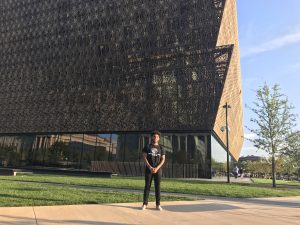My favorite class is my hardest class
My favorite course this term (my only term thus far) is Power, Territoriality, and Political Geography taught by Professor Garnet Kindervater. In this course, we analyze the relationship between power and space, and how that is inherently tied to knowledge. To do this, we have looked at the works of Rene Descartes, Michel Foucault, Hegel, David Harvey, Edward Said, Michelle Alexander and others. In the end, this course has changed my perception of how I view my surroundings and approach different spaces. In case you didn't know, Dartmouth has the #1 geography department in the Ivy League! However, it is also the only geography department in the Ivy League... Take that as you may, I still think it's pretty impressive.
I've come to enjoy this class because it produces really good discussions on the material we're working with, but also encourages us to apply it to the world around us. My engagement in this course has also helped me better define some of my understandings. The fact that there are only 15 students is also a big reason why we're able to have good discussions. If the size of the class were doubled, I don't think we would be able to have the same discussions due to the improbability of having everyone contribute. For me, that was one of the main attributes I sought in a college: small class sizes where I can get to know my professor and classmates. Additionally, we're encouraged to attend office hours (which I also encourage you to do once you're here!). This gives you the ability to meet with your professor one 0n one to discuss whatever you would like. Sometimes it is nice just to talk, not even directly about the class material but about something that happened to you that you think is related to the class. The biggest difference between this class and a class in high school is that it was very abstract at first. It required a lot of what I like to call "hard thinking" which is when you read something and ask yourself what in the world did I just read? But then, after rereading it, annotating, and letting it "marinate" you have a moment where you begin to understand the material. For this course, I had the opportunity to do a research paper on a topic of my choice -- the hardest part was developing a clear, defined thesis. In the end , I wrote my paper on the lack of an African American narrative in traditional museums and how this has contributed to the notion of African Americans as non-contributors in history; this narrative is now being corrected by the National Museum of African American History and Culture.
